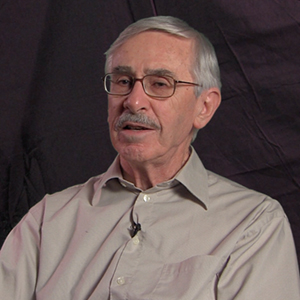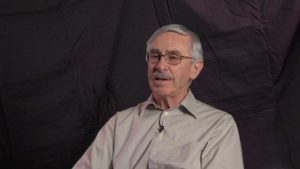Ian Gibbons, together with his wife Barbara, identified and named the motor protein dynein. Gibbons has continued to work on the function and structure of dynein throughout his long career. After receiving his PhD in biophysics from the University of Cambridge, he took a position at Harvard and then at the Kewalo Marine Laboratory at the University of Hawaii.
Currently, he is a Visiting Scholar at UC Berkeley. He has received numerous honors for his work including the Shaw Prize in Life Science and Medicine (2017), the Japanese International Prize for Biology (1995), the E. B. Wilson Medal of the American Society for Cell Biology (1994), and the Lezioni Lincei of the Academia dei Lincei in Rome (1988).





